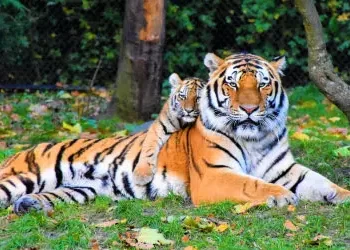DISCLAIMER: This article is not intended to provide legal advice but to provide general information on the matter covered in the Article. The article does not constitute and is not to be relied upon as legal advice. Victory Attorneys & Consultants shall not be responsible for any loss in the event this Article is relied upon without seeking our professional advice first.
LAWS GOVERNING ACCOMMODATION FACILITIES IN THE TANZANIA MAINLAND TOURISM INDUSTRY AND THE PERTAINING GAP.
FEBRUARY 27, 2024
By. Benedict A. Ishabakaki & Kasimu M. Ititi
Introduction
The tourism sector plays a crucial role in generating national income. It is imperative to give due consideration to various aspects, with particular emphasis on the proper establishment and regulation of accommodation facilities. This article contends that existing legal frameworks fall short, resulting in inadequate oversight and regulation of accommodation facilities within the tourism sector.
Before embarking into discussion of the legal framework, it is crucial to examine the factors influencing the establishment of accommodation facilities in the tourism sector. There are several key considerations businesses entities or individuals should weigh before deciding on the type of accommodation facility to establish which include but are not limited to, the following;
- Location or place for the establishment; the choice of location is a critical factor in establishing accommodation facilities within the tourism sector. It involves assessing whether the area is protected, classified, or not, taking into account the specific circumstances.
- Availability of finance is crucial when considering the establishment of accommodation facilities, as costs vary among different types of establishments. This helps in making a well-informed decision, understanding prospective clients is also essential, taking into account their preferences and needs.
- Furthermore, assessment of the competitive landscape is important, this may involve a thorough examination of competitors in the area in order to make an informed decision on the type of the accommodation facilities, one may establish.
After the highlight the key considerations in deciding whether to establish a hotel, lodge, or tented camp, it becomes crucial to describe the distinctive features of each accommodation facility. This exploration allows potential investors or individuals to grasp the unique attributes of each type of accommodation facility, aiding them in making decisions aligned with their goals and preferences within the tourism sector.
Types of accommodation Facilities
- Hotels
According section 2 of the Hotels Act, Cap 105, hotels mean any establishment intended for the reception of travelers or visitors who may choose to stay there and carried on with of profit or gain. However, in practice, hotels can be described as establishments situated in urban areas where visitors can stay for several nights while enjoying amenities such as food, drinks, and various services. From a tourism standpoint, experience shows that hotels are typically large properties with the capacity to accommodate 50-150 guests. They vary in budget, with some costing over $150-200 per person per night, while high-end boutique hotels can exceed $1,000 per person per night. It’s important to note that while hotels cater to a broad spectrum of travelers, those seeking an immersive safari experience might prefer tented accommodation if available.
Key features characterizing hotels include a front desk, modern conveniences, excellent customer service, a fixed location, and the potential for an immersive experience. These traits collectively contribute to the appeal and functionality of hotels within the realm of accommodation facilities.
- Lodge or Safari Lodge
Lodges, especially in countries like Tanzania and Kenya, exhibit significant variations in size and style. Many lodges accommodate large numbers of guests, with some boasting over 60 rooms. These establishments often provide comprehensive facilities, including conference rooms, business centers, and swimming pools.
Lodges can be found in various locations, including both inside and outside national parks or reserves, with distinctive features that set them apart. Lodges have a permanent structure, typically with more substantial construction compared to canvas tented camps, offering a higher level of luxury. While some lodges provide a hotel-style experience, their costs are often more budget-friendly than tented camps due to their larger assets and numerous accommodation units. The distinct features of lodges make them a compelling choice for those seeking a blend of comfort and amenities in their safari experience.
- Tented Camps
Tented camps are widely regarded as ideal for an authentic safari experience. Typically, luxury tented camps are small-scale, featuring between 5 and 20 tents. All tents in safari camps offer spacious canvas rooms with real beds and private en-suite bathroom facilities.
Luxury tented camps provide breathtaking views of the surroundings in a tranquil and serene environment. These camps commonly feature private decks overlooking the bush, large sleeping areas, separate bathrooms, and showers with hot and cold running water, as well as electricity. Tented camps can be further classified into three types as highlighted below; –
- Permanent Tented Camp
Permanent tented camps are said to remain fixed in a specific location, allowing for stable and well-established operations. These camps typically set up on elevated grounds, featuring hardwood flooring and canvas walls in their tent structures. This permanency ensures a more enduring and reliable camping experience for those seeking a connection with nature without compromising on comfort and stability.
- Seasonal Camp
A seasonal camp is designed to adapt to the changing movements of wildlife throughout different seasons, ensuring an optimal experience. These non-permanent tents provide a fully immersive experience in nature. Typically set up for three-to-six-month periods, these camps strategically align with events such as the wildebeest migration other wildlife movements. Seasonal camps places visitors in prime locations for exceptional game viewing, allowing them to witness the beauty and diversity of nature at its best.
- Mobile Tented Camp
Mobile camps are specifically crafted to move seasonally, aligning with the migration patterns of wildebeest herds. Consequently, these camps do not have any permanent structures, consisting primarily of canvas sleeping tents, dining areas, and lounging tents. Generally small in scale, accommodating 12-25 guests, mobile camps offer an intimate experience immersed in the bush.
It’s important to note that mobile camps operate within national parks and game reserves, limiting their activities to daytime and on-road game driving. This emphasis on mobility ensures that guests have the opportunity to witness the dynamic movements of wildlife and experience the natural beauty of diverse landscapes while maintaining a smaller ecological footprint.
Legal Framework Governing Accommodation Facilities
Introduction
The focus of the legal framework governing accommodation facilities is mainly given to Tanzania Mainland. The main reason, Tanzania Zanzibar has its own laws governing tourism or matters related thereto. It should be noted that, these variations of the legal framework governing tourism in Tanzania are due to the fact that natural resources are not among the union matters save for the oil and gases. This part intends to show reveals matters which are well covered and those matters which are not well covered thereto.
The Tourism Act, 2008
This Act provides for a comprehensive institutional framework, administration, regulation, registration, and licensing of tourism facilities and activities, addressing various tourism related matters. The primary aim of this Act is to provide a legal foundation for conducting tourism business in Tanzania mainland. despite the fact that, this Act covers most of things related to tourism matters in Tanzania mainland, on other hand leaves tourism accommodation facilities uncovered.
The Hotels Act, 2006
This was enacted to regulate the hotel business in Tanzania, the Act provides definitions for terms like hotel and guest house in alignment with their usage in the tourism sector. However, the Act, does not provide definitions of lodges and tented camps. This gap is attributed to the circumstances prevailing during the Act’s enactment, where the development of the tourism sector in Tanzania was still in its early stages, and the demand for lodges and tented camps was not as prominent. Given the current heightened demand for these accommodation types, there is a need for amendments to address the evolving dynamics of the tourism industry.
The Tourism (Accommodation Facility) Regulation, 2015
These regulations, made under section 56 of the Tourism Act of 2008, serve as guidelines outlining the procedures for establishing or registering tourism accommodation facilities in Tanzania. Representing a significant step in the regulation of such facilities, these regulations are the first of their kind, aiming to bring clarity to the industry. Despite their positive aspects, there are notable shortcomings. Firstly, as subsidiary legislation, the binding effect is somewhat passive compared to the enabling legislation. Secondly, the regulations do not explicitly define or categorize types of accommodation facilities. Regulation 13(1) grants the Minister the authority to determine the classification and types of accommodations, leaving room for potential gaps and uncertainties in the regulatory framework.
The Guideline on Registration and Licensing of Tourism Operator, 2018
These guidelines have been issued by the Ministry of Tourism and Natural Resources. They serve as a reference for the necessary requirements in the registration and licensing of various tourism activities. They encompass regulations for the registration and licensing of accommodation facilities, among other aspects. However, it’s important to note that the guidelines do not specify particular types of accommodation facilities. While they outline the necessary steps for registration and licensing, the absence of detailed categories for accommodation facilities leaves room for potential ambiguity in the classification process. These guidelines were not enacted under any parent Act, Tourism Act or hotels Act, rather remains as internal guidelines made by the minister responsible for tourism and natural resources. Thus, from legal perspective they may be taken as not binding and be relied upon in terms of enforceability or in its implementation.
Conclusion
As technology continues to advance and positively impact the tourism sector, this article suggests the imperative need for harmonizing the legal framework to adapt to evolving trends. Specifically, the inclusion of provisions pertaining to newer forms of accommodation facilities, such as lodges and tented camps, within the existing Hotels Act is strongly recommended. The laws should be proactively drafted/be able to anticipate and regulate the foreseen developments, ensuring comprehensive and effective oversight of the evolving landscape in the tourism industry.
For further details, legal advice, and consultation regarding investments in accommodation facilities within the tourism in Tanzania, please feel free to reach out to us at the following address; –
Victory Attorneys & Consultants,
IT Plaza Building, 1st Floor,
Ohio Street/Garden Avenue,
P. O. Box 72015, Dar es Salaam.
Mobile No: 0752089685/0682197331
Email: info@victoryattorneys.co.tz



